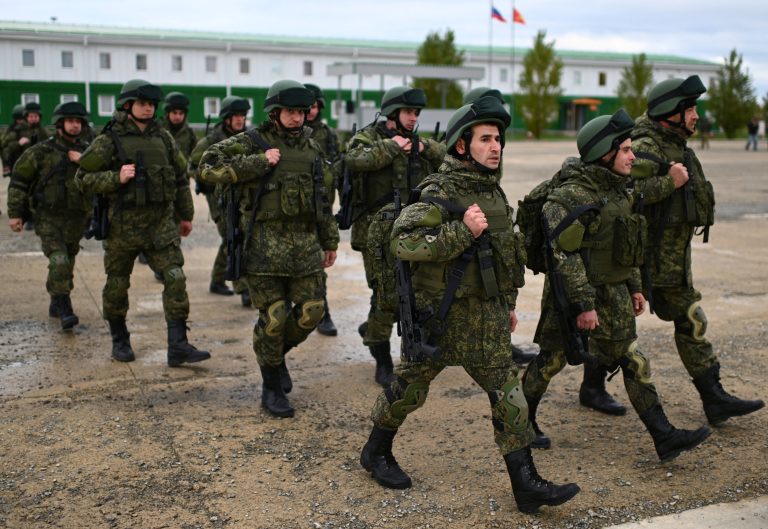The Duma, or lower house of the Russian legislature, passed a proposal to modernize its compulsory military service procedures, making it easier to track down potential draftees and harder for conscientious objectors to opt out.
The legislators gave their green light to the bill in two separate votes with near unanimity on Tuesday, April 11.
Legal experts said that the proposal was processed too quickly to allow sufficient time for opposing voices to scrutinize the bill.
Russia experienced difficulties last September and October in calling up the first 300,000 reservists to serve in the invasion of Ukraine, where the Russian forces face mass Ukrainian conscripts defending their country with copious Western material and moral support.
The Kremlin has said that the current deployment is sufficient for Russia to meet the goals of its “special military operation,” but those goals have been vague and progress in the war has been slow and costly.
Success
You are now signed up for our newsletter
Success
Check your email to complete sign up
READ MORE:
- Russians Capture Govt. Office in Bakhmut as Battle for City Center Continues
- Russia Advances in Eastern Ukraine as Zelenskiy Warns of Tougher Battles
- Russia Publishes First Estimate of Losses in Ukraine Invasion
- Ukrainian Teens Deployed on Frontlines After ‘Three Days’ Basic Training’: BBC
The new procedure is intended to fix numerous loopholes and errors in the existing conscription process. Officials believe it will give the government more clout when launching unique drafting campaigns on top of its regular two-yearly conscription missions canvassing eligible men between 18 and 27 years of age.
Russia’s Digitized conscription
“We need to perfect and modernize the military call-up system,” Kremlin spokesman Dmitry Peskov told a news briefing on Tuesday, April 11, before the Duma vote.
Currently, potential conscripts receive a letter at their registered home address or workplace, which they must sign as proof of its reception. However, it sometimes took work for recruiters to deliver the papers and to know if they had the correct address for a draftee.
The summons will now be digitally delivered under the revised recommendations to a prospective draftee’s account on the primary government portal. The warrant is delivered instantly as soon as it is furnished electronically.
According to the new rules, citizens who don’t show up at the military enrollment office will instantly lose their right to travel outside of Russia and face several additional limitations that will make civilian life hard.
military credit system
The rules have been likened to a “military credit system” mirroring Communist China’s “social credit system,” where Chinese earn merits or demerits based on their everyday and political behavior, which is tracked by police, mass surveillance, and AI.
Peskov also referred to “problems” experienced last year with the first mobilization campaign since World War II, prompting tens of thousands of draft-age men to flee abroad and even riots and mass shootings to occur in several cities.
Among those mistakes in its initial mobilization campaign that the Kremlin vowed to correct were wrongfully drafted men who were over-aged or physically unfit to fight.
However, the current amendments were not inspired to launch an additional conscription crusade. “[This plan] is not connected to mobilization,” Peskov assured in an apparent attempt to avoid another wave of panic and emigration among young Russian men.
On top of its regiment of 300,000 conscripted servicemen, Russian authorities are currently concentrating on coaxing as many volunteer soldiers as possible via extensive recruiting advertisement campaigns.
The ruling will now be sent to the Upper House before it lands on Vladimir Putin’s desk for ratification before it can take effect. Still, given the speed with which the Lower House approved it, experts expect the process to be finalized within days.
Reuters contributed to this article







